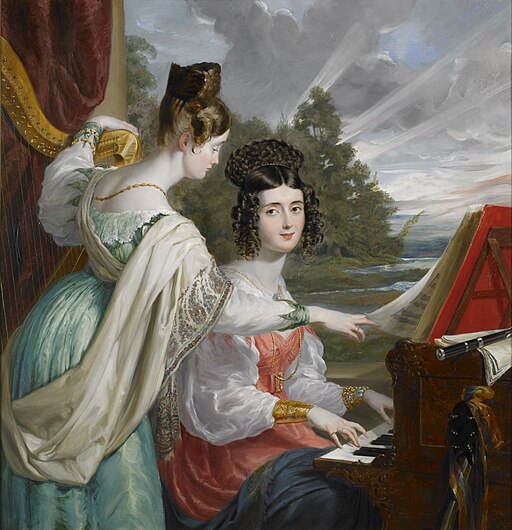Moore had a profound response to music, which could move him to tears–even in a public setting. This blog will sketch its presence in his every-day life. Oddly, he was not given music lessons as a child, but seems to have been stimulated by his sister’s lessons on the piano and the presence of the instrument in his family home. Music for Moore was a form of release. On 27 Sept. 1818, after a day of hard work on his biography of Richard Brinsley Sheridan, he relaxed by copying out a Benedictus of Mozart and the “Et incarnatus est” of Haydn, describing these composers as “both the ‘merum sal’ of music”, playing and singing his new acquisitions before supper with his wife Bessy and one “Mary D”. After the ladies retired that evening, Moore played some piano sonatas of Muzio Clementi, an act which reminded him of hearing his own sister play the very same pieces when he was a child. And so as a youth Moore developed a particular appreciation for the leading European masters of the ‘Classical’ era — Joseph Haydn (1732-1809), Wolfgang Amadeus Mozart (1756-1791), and Ludwig van Beethoven (1770-1827). His Journal frequently details his encounters of theirs (and other’s) music in domestic settings — remember at this time people made their own entertainment in the evening, and informal concerts or music-making sessions amongst friends was common.  Continue reading →
Continue reading →
